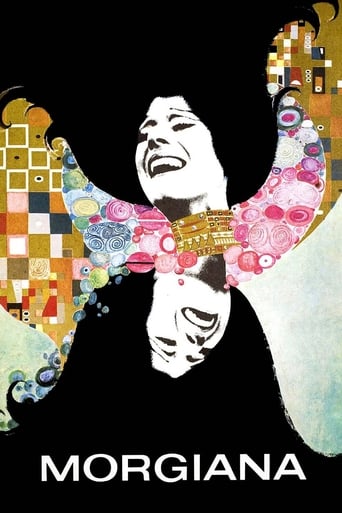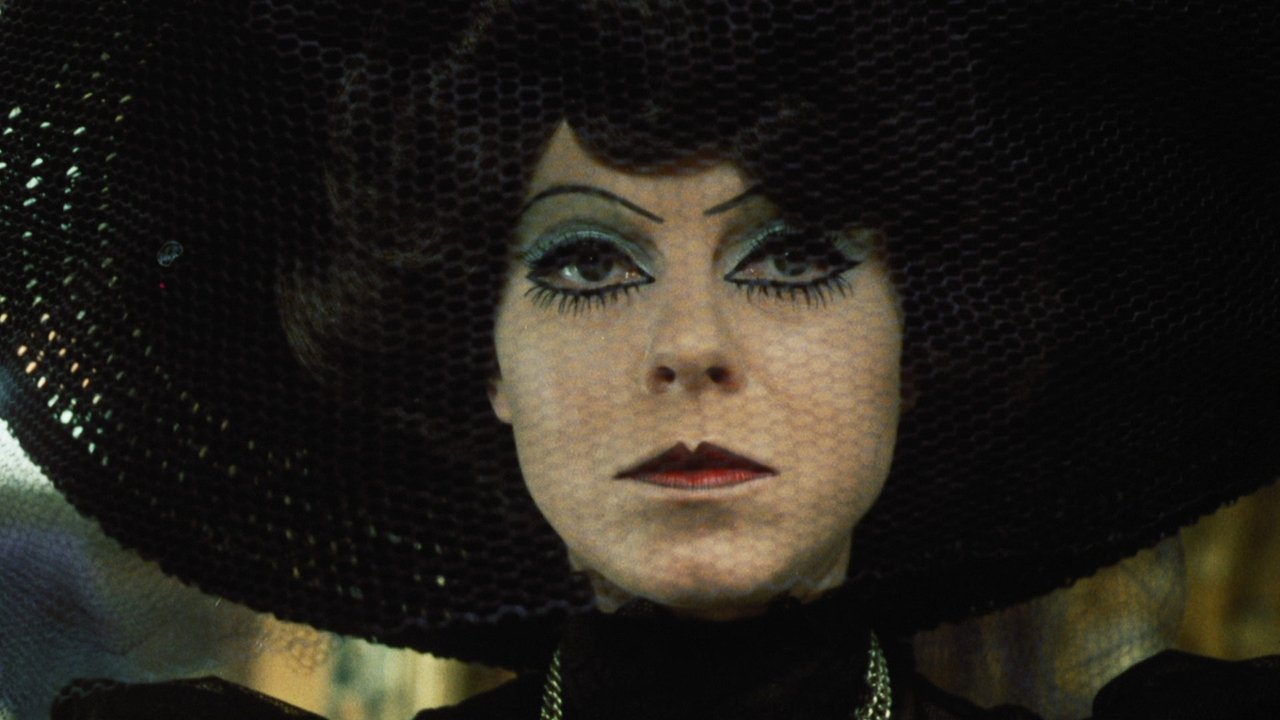morrison-dylan-fan
Originally planning to watch Karel Kachyna's Long Live the Republic got stopped in their tracks,when the DVD kept jamming up in the player.Since I had planned to watch the movie after seeing Horseman,I decided that it was time to meet Morgiana.The plot:After the sudden death of their dad,sisters Klára and Viktoria attend the reading of the will.Caught completely by surprise, Viktoria discovers that their dad has left most of the riches to Klára.Shortly after the reading of the will, Klára starts to go out with a guy who Viktoria has secretly had her eyes on for ages.Burning with rage,Viktoria picks up their pet cat Morgiana,and starts to tell Morgiana her plans to take from Klára what is rightfully hers.View on the film:Whilst the print does have some noticeable dirt,Second Run still run with a strong transfer which picks up the notes of Lubos Fiser's spidery score with a clarity and also showcases the depth of vision for this Gothic nightmare.Breaking out from the grainy black and white world of The Cremator,co-writer/(along with Vladimír Bor) director Juraj Herz leaps into colour with an infectious energy.Opening with clipped paintings,Herz and cinematographer Jaroslav Kucera crush the screen with vibrant reds and charcoal blacks which under a cloud of mist reveal the Gothic Horror Melodrama that the sisters are entwined in with a delicious richness. Unexpectedly dipping into the psychedelic,Herz shows an amazingly playful side which jumps from an ultra-stylised "light show" and Giallo-style first person tracking shot, (with black gloves!)to reflecting in-camera special effects which highlight the deadly differences between each sister.Getting Alexander Grin's (whose books were banned by the Soviet Union for "not promoting socialism") novel from out of the cave,the screenplay by Bor & Herz cleverly uses the sisters to link the genres that the movie is crossing,as Klara's ordeal keeps the Melodrama bubble away whilst Viktoria's sting makes the Gothic chills strike with a mysterious atmosphere.Making sure that the sisters don't get to keep all the fun to themselves,the writers edge out their Gothic dream with wonderfully quirky sides,from a cat who witnesses everything,to a dashing lover who injects Viktoria with burning eyes of jealousy. Reuniting with Herz after making Oil Lamps a year earlier, Iva Janurová gives an exquisite performance as Klára & Viktoria.Taking on both roles, Janzurová lavishly gives each sister a distinctive quality,thanks to Janzurová soaking Klára in a care-free mood which is crushed by Viktoria's blistering eyes and twitch of a furious lip,as Viktoria tells her secrets to the pet Morgiana.
Red-Barracuda
Morgiana is a product of the Czechoslovakian new wave. It's a turn of the century melodrama that has elements of Gothic horror. It's about two sisters, Klára and Viktorie. The former is good hearted and the other is wicked. The story begins with the death of their father and the reading of his will. Unsurprisingly, his inheritance favours Klára, much to Victorie's displeasure. Her uncontrolled jealousy drives her to try and murder her sister with a hard-to-detect slow-acting poison but events do not pan out quite as planned.The most obvious film to compare this one to is Valerie and Her Week of Wonders, the wonderful dark fantasy film from a couple of years earlier. It too, was a product of the Czechoslovakian new wave and both films share a similar aesthetic. While Valerie is the more visually striking, Morgiana is a very beautiful film too. Its female characters wear intense make-up and over-the-top elaborate costumes. Very garish and almost grotesque at times, the look is very reminiscent of characters from a fairy tale, which is an aspect that Morgiana definitely shares with Valerie.The Central European ambiance certainly counts for a lot in this movie and from the outset it's pretty evident with an opening credit sequence replete with surreal paintings of the type very much associated with this part of the world. The slightly unreal and fantastic feeling is maintained throughout the movie, with melodramatic acting, garish décor and unusual outdoor locations such as the elaborate gardens and the standing stones near the cliff. The look is accentuated further by the use of fish-eye lenses and even agitated camera-work from the point-of-view of Morgiana the cat! The score from Lubos Fiser is extremely effective too, capturing the dark tone very well. As far as dramatics are concerned, it's essentially a tale of two sisters and both are played by the same actress, Iva Janzurová. She is so convincing that, when watching, I thought it must be two different real sisters in these roles.Morgiana is a real treat for anyone who appreciates Gothic cinema, particularly those who loved the Czechoslovakian ambiance of Valerie and Her Week of Wonders. It's a visually enchanting film and one that should certainly be seen by a wider audience.
timmy_501
Like his somewhat more famous Cremator, Juraj Herz's Morgiana is primarily interesting because of its unique visual style. In Morgiana, Herz uses fisheye lenses generously and he also gets a lot of mileage out of unusual camera angles. These aren't the only things that give the film visual interest, however: each frame is packed full of Gothic details as it's primarily set in a couple of ornate Victorian style mansions. Further, there are several psychedelic point of view shots that indicate a character's hallucinations and some wild pans to represent disorientation. The plot of Morgiana focuses on a pair of sisters, Klara and Viktorie, who each inherit half of their father's large estate. The two sisters are essentially opposite, which is conveyed both by their behavior-Klara is happy and popular while Viktorie is depressed and lonely-and by their looks as Klara wears bright colors while Viktorie wears dark colors. Viktorie becomes jealous of her sister who has the better life and better inheritance and decides to poison her, which causes her to hallucinate and waste away. Meanwhile Viktorie becomes increasingly unable to hide her guilt. There's nothing particularly novel or clever about the plot as is (though Herz reportedly did have a clever twist in mind that he wasn't allowed to film) but the visuals enrich the narrative as well, particularly the way Herz develops different motifs for the different sisters. Overall, Morgiana is a masterpiece that should be especially appealing to fans of The Cremator or other Czech New Wave films such as Valerie and Her Week of Wonders.
ofumalow
Juraj Herz's 1971 Morgiana is less Carroll-gone-softcore than Edward Gorey as filmed by Ken Russell-a sardonic chunk of Victorian penny-dreadful melodrama tweaked to new levels of aesthetic and emotional hysteria. Jealous of her vapidly "good" sister's popularity, poisonous Viktoria doses pretty Klara's tea with a slow-acting fatal substance. As the latter grows hysterically weak, the former finds success increasingly compromised by guilt, blackmail, and the pesky need to kill others lest she be exposed. The women here are painted as elaborately as psychedelic-drag-queen Cockettes, and the purple extremity of their predicament is drawn in equally bizarre/extravagant terms. It's like a dress-up, younger-generation version of Baby Jane?, set in an ornamental snow globe.


 AD
AD




